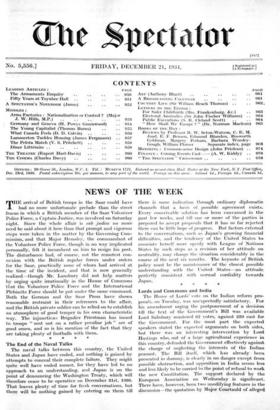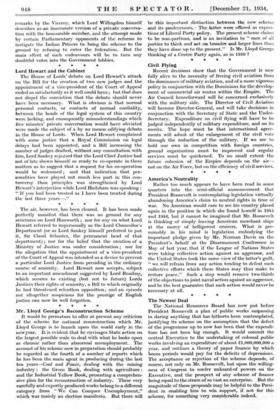Lords and Commons and India The House of Lords' vote
on the Indian reform pro- posals, on Tuesday, was unexpectedly satisfactory. For his amendment urging the postponement of a decision till the text of the Government's Bill was available Lord Salisbury mustered 62 votes, against 289 cast for the Government. For the most part the expected speakers stated the expected arguments on both sides, but there was an interesting intervention by Lord Hastings who, out of a large agricultural experience in this country, defended the Government effectively against the charge of neglecting the interests of the Indian peasant. The Bill itself, which has already been presented in dummy, is clearly in no danger except from possible obstruction, and opposition in India seems less and less likely to be carried to the point of refusal to work the new Constitution. The support declared by the European Association on Wednesday is significant. There have, however, been two unedifying features in the discussion—the quotation by Major Courtauld of alleged remarks by the Viceroy, which Lord Willingdon himself describes as an inaccurate version of a private conversa- tion with the honourable member, and the attempt made by certain Parliamentary opponents of the reforms to instigate the Indian Princes to bring the scheme to the ground by refusing to enter the federation. But the main effect of such endeavours will be to turn any -doubtful votes into the Government lobbies.



































